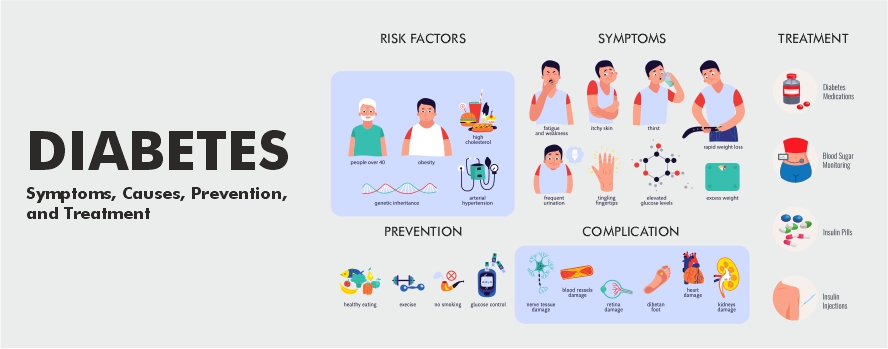By Desmond Nleya
Diabetes is one of the most common chronic health conditions in the world today, affecting millions of people across all age groups. It is a disorder in which the body either does not produce enough insulin or cannot effectively use the insulin it produces, leading to high blood sugar levels. Left unmanaged, diabetes can cause severe complications, including heart disease, kidney failure, nerve damage, and vision problems.
What is Diabetes?
Insulin is a hormone made by the pancreas that helps the body convert glucose (sugar from food) into energy. In diabetes, this system does not work properly, causing glucose to remain in the bloodstream instead of being absorbed by cells. There are three main types of diabetes:
• Type 1 Diabetes – An autoimmune condition where the immune system destroys insulin-producing cells.
• Type 2 Diabetes – The most common form, where the body becomes resistant to insulin or doesn’t produce enough.
• Gestational Diabetes – Develops during pregnancy and usually resolves after childbirth but increases the risk of Type 2 later in life.
Causes of Diabetes
Several factors can contribute to the development of diabetes:
• Genetics and family history – Having a parent or sibling with diabetes increases risk.
• Unhealthy lifestyle – Poor diet, lack of physical activity, and obesity are major triggers for Type 2 diabetes.
• Age – Risk increases with age, especially after 45.
• Medical conditions – High blood pressure, high cholesterol, and polycystic ovarian syndrome (PCOS) may increase susceptibility.
• Pregnancy-related factors – Hormonal changes during pregnancy can temporarily affect insulin response.
Symptoms of Diabetes
The early signs of diabetes may be mild and often go unnoticed. Common symptoms include:
• Frequent urination
• Excessive thirst and dry mouth
• Unexplained weight loss (more common in Type 1)
• Fatigue and weakness
• Blurred vision
• Slow-healing wounds or frequent infections
• Tingling or numbness in hands and feet
Prevention of Diabetes
While Type 1 diabetes cannot currently be prevented, Type 2 diabetes and gestational diabetes can often be avoided or delayed by making healthy lifestyle choices:
• Balanced diet – Focus on whole grains, vegetables, lean proteins, and limited sugar intake.
• Regular exercise – At least 150 minutes of moderate physical activity per week.
• Maintain healthy weight – Prevent obesity and reduce belly fat.
• Regular check-ups – Early detection through blood sugar screening helps prevent complications.
• Avoid smoking and limit alcohol – Both can increase the risk of diabetes and related complications.
Can Diabetes Be Cured?
At present, there is no permanent cure for diabetes. However, it can be effectively managed and controlled:
• Type 1 Diabetes requires lifelong insulin therapy along with healthy living.
• Type 2 Diabetes can often be controlled—and sometimes put into remission—through weight loss, dietary changes, exercise, and medication.
• Gestational Diabetes usually disappears after delivery, but women must maintain a healthy lifestyle to reduce future risks.
Research is ongoing in fields like pancreas transplants, stem cell therapy, and advanced medications, raising hope for future cures.
Diabetes is not just a health challenge—it is a lifestyle condition that requires awareness, discipline, and management. While it may not always be preventable, early detection and proper care can significantly reduce its impact. A healthy lifestyle, regular screenings, and proper medical support remain the most powerful tools in the fight against diabetes.


